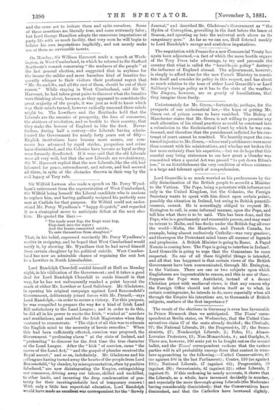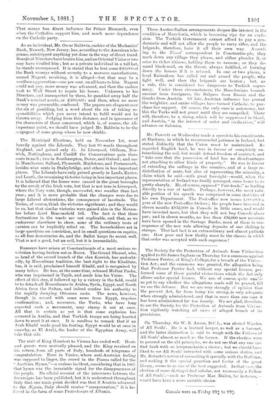The result of the elections in Germany is even less
favourable to Prince Bismarck than we anticipated. The Times- ' corre- spondent at Berlin states, on Wednesday, that the United Con- servatives claim 67 of the seats already decided ; the Clericals, 97; the National Liberals, 28; the Progressists, 37; the Seces- sionists, 27; Nondescript Liberals, 2; Poles, 15; Alsace- Lorraine Protesters, 13; Non-Monarchists, 4; and Guelphs, 8. There are, however, 100 seats yet to be fought out on the second ballot, and the Times' correspondent reckons that the various parties will in all probability emerge from that contest in num- bers approaching to the following :—United Conservatives, 85 (as against 106 in the last Parliament) ; Centre, 110 (as against 105) ; National Liberals, 47 (against 64) ; Progressists, 59 (against 28) ; Secessionists, 42 (against 2-2): other Liberals, 7 (against 9). If this reckoning be nearly accurate, it shows that the Liberals, as a whole, have increased decidedly in number, , and especially the more thorough-going Liberals (the Moderates having considerably diminished) ; that the Conservatives have diminished, and that the Catholics have increased slightly.
That means less direct influence for Prince Bismarck, even when the Catholics support him, and much more dependence on the Catholic party.



































 Previous page
Previous page